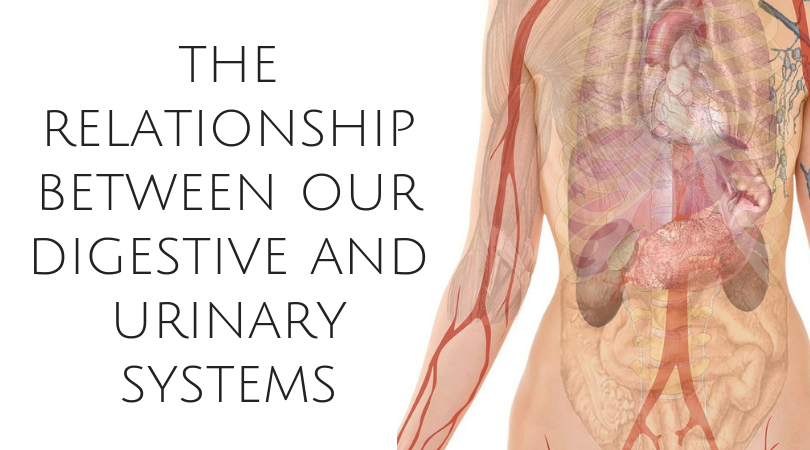Updated for 2023
You might not know this, but the urinary and digestive systems are closely connected to each other. The urinary and digestive systems, though distinct, share a significant interconnection that influences overall health. A clear understanding of each system's individual functions is crucial to appreciate their interconnected roles. Recognizing the importance of their synergy is key to fostering a healthier body and well-being.
Digestive system
Our bodies need energy to function properly, and food = energy. When we eat, we take in valuable nutritional substances that help our body remain healthy. Without enough food, we can’t effectively perform our daily tasks, e.g. do our jobs, exercise, enjoy our free time, and so on.
The process of digestion begins the moment we put food in our mouth. Saliva contains an enzyme – amylase – which breaks down some starches into dextrin and maltose. Saliva also moistens and lubricates, making our food easier to swallow. The food then travels down to our stomach, where the “heavy lifting” process of digestion begins (some people wrongly believe that by the time food leaves the stomach the digestion process is over – that couldn’t be further from the truth!). From there, it passes through the approximately 23 feet! of our small intestine and finally, into our large intestine. All throughout this process, our body is absorbing valuable nutrients.
Some substances that are broken down end up in our kidneys after passing through our blood. Once our kidneys do their job of filtering, the waste is sent through the bladder and disposed through the urinary tract.
Urinary system
The main purpose of our urinary system is to remove waste and harmful substances from our body. It also has an important role in keeping the body in balance, by regulating and controlling the volume and composition of blood in our body.
The urinary system organs include two kidneys, bladder, two ureters and an urethra. Our kidneys are located just above the waist and their cells have the ability to filter the blood running through them from excess bad substances and waste.
In this process, the kidneys create urine which is transported by the two ureters straight into the bladder. Our bladder can expand and contract in size, depending on the amount of urine that is currently stored inside of it.
When our bladder is fairly full, the receptors send signals to our brain telling us that it’s time to urinate. All of the urine is released from the body through the urethra, a tube that leads urine from the bladder to the exterior.
The connection between the urinary and digestive systems
The reason why the digestive and urinary systems are constantly mentioned together is because of the fact that they work together and complement each other in keeping our body healthy. Our digestive system dissolves food to get valuable nutrients and excretes solid waste, while our urinary system gets rid of the liquid waste. These systems are so interlinked that urinary tract infections (UTI) are often blamed on an overgrowth of E.Coli (a quick aside, two of the four ingredients in Great Gut Extra-Strength Prebiotic Fiber have been shown to be resistant to breakdown by E.Coli and subsequently promote the growth of good bacteria, which crowds out gut pathogens like E.Coli.)
Both of these systems have separate organs, but they remain intimately connected by virtue of the processes they both do. As food travels through our intestines, nutrients are absorbed. At the same time, wasteful liquids are also absorbed through the walls of both the small and large intestine, and they travel through the circulatory system directly to the urinary system, where they are ultimately led to the urethra and removed from the body.
Possible problems
Given the fact that the urinary and digestive systems are quite closely connected and work together, it also means that if one of the systems encounters a problem, the other one will probably also be affected by it.
For example, one of the most common problems is when the digestive system is not able to break down the food properly and, because of this, excess toxins end up in the urinary system. This can be the cause to of urinary tract infections as well as kidney stones.
Likewise, if our kidneys are not working properly, they will have a great affect on the digestive system. The toxins that get delivered from the digestive organs to the kidneys to be filtered won’t be processed properly, meaning that they will go back into our bloodstream and cause problems for our entire body, including our digestive system.
The connection between the circulatory system and other systems of the body
After it has traveled through our body, blood finally enters our urinary system. This is one of our blood’s last stops before it makes the return journey to our heart. In the kidneys, our blood gets its pH levels get balanced, toxins get pulled out, and our blood pressure is regulated by coming into contact with renin produced by the kidneys.
On the other hand, the circulatory system needs to function regularly to be able to deliver all the necessary blood to the kidneys in order for it to be filtered. As you can see, there is an intricate relationship between the urinary and digestive systems and the other organ systems in our body.
It's not uncommon for symptoms of illness and disease in one of these systems to be traced back to an origin in another. They might be separate systems, but they really aren’t, and in most cases, when something goes wrong in one, the consequences are eventually felt all throughout the body. This is why it’s so important not to ignore what may seem like inconsequential symptoms. Those symptoms may be trying to warn you of a more serious problem somewhere else in the body.
Summary
Although urinary and digestive systems are considered as “separate” bodily functions, they really are quite connected. In order for one of them to function properly, the other must be healthy as well. The same holds true when something goes wrong; if one of the systems isn’t working properly, the other one probably isn’t, either. They depend on each other in every way.
Wanting to help your digestive system and have a healthier gut? Great Gut's Prebiotic Fiber powder is a special blend of four prebiotic soluble fibers. These premium, proven-effective prebiotics work together to balance your biome and improve digestion. Pick yours up today!

